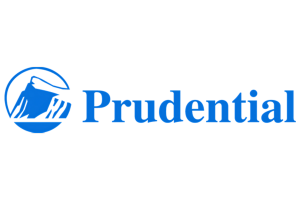Can I get a non-smoker discount on my life insurance policy?
Are you a non-smoker looking for a life insurance policy? Discover if you can get a non-smoker discount on your policy and save money while protecting your loved ones. Find out more in this informative article.
Read more Secured with SHA-256 Encryption





Compare Quotes From Top Companies and Save
Life insurance policies starting at less than $1/day




Table of Contents
Table of Contents


Insurance Content Managing Editor
Daniel S. Young began his professional career as chief editor of The Chanticleer, a Jacksonville State University newspaper. He also contributed to The Anniston Star, a local newspaper in Alabama. Daniel holds a BA in Communication and is pursuing an MA in Journalism & Media Studies at the University of Alabama. With a strong desire to help others protect their investments, Daniel has writt...
Daniel S. Young


Licensed Insurance Producer
Dani Best has been a licensed insurance producer for nearly 10 years. Dani began her insurance career in a sales role with State Farm in 2014. During her time in sales, she graduated with her Bachelors in Psychology from Capella University and is currently earning her Masters in Marriage and Family Therapy. Since 2014, Dani has held and maintains licenses in Life, Disability, Property, and Casualt...
Dani Best
Updated January 2025
In today’s world, life insurance has become a critical financial tool for protecting our loved ones and ensuring their future stability. One aspect that often comes into play when determining life insurance rates is the individual’s smoking habits. For smokers, the cost of life insurance can be significantly higher due to the increased health risks associated with smoking. However, for non-smokers, there is the potential to receive a valuable discount on their life insurance policy. In this article, we will dive deep into the world of non-smoker discounts and explore the intricacies associated with securing one.
Understanding Life Insurance Policies
Before we delve into the realm of non-smoker discounts, it is essential to understand the basics of life insurance policies. These policies serve as a safety net, providing financial protection to your beneficiaries in the event of your passing. As you explore different life insurance options, you will come across various kinds of policies, each with its unique set of features and benefits.
What is a Life Insurance Policy?
A life insurance policy is a contract between the policyholder and the insurance company. It promises to pay a predetermined amount, known as the death benefit, to the beneficiaries upon the policyholder’s death. This financial safety net helps ease the burden of any outstanding debts, mortgage payments, or other financial responsibilities the policyholder may have left behind.
Life insurance policies offer peace of mind by ensuring that your loved ones are taken care of financially after you are gone. By paying regular premiums, you are essentially pooling your resources with other policyholders to create a fund that can provide financial support to your beneficiaries when they need it the most.
The death benefit provided by a life insurance policy can be used for various purposes. It can help cover funeral expenses, pay off outstanding debts such as mortgages, car loans, or credit card bills, and ensure that your family can maintain their standard of living even without your income.
Different Types of Life Insurance Policies
There are several types of life insurance policies available in the market, each designed to meet different needs and preferences. The most common types include term life insurance, whole life insurance, and universal life insurance. It’s crucial to understand the distinctions among these policies to make an informed decision.
1. Term Life Insurance: This type of policy provides coverage for a specific period, usually 10, 20, or 30 years. It offers a death benefit to the beneficiaries if the policyholder passes away during the term. Term life insurance is typically more affordable compared to other types of policies, making it an attractive option for individuals seeking temporary coverage.
2. Whole Life Insurance: Unlike term life insurance, whole life insurance provides coverage for the entire lifetime of the policyholder. It offers a death benefit to the beneficiaries and also accumulates cash value over time. This cash value can be accessed by the policyholder during their lifetime for various purposes, such as supplementing retirement income or paying for unexpected expenses.
3. Universal Life Insurance: Universal life insurance combines the death benefit of traditional life insurance with a flexible savings component. Policyholders can adjust the premium payments and death benefit amount throughout the policy’s lifetime, providing more control and flexibility. The cash value in a universal life insurance policy also has the potential to grow over time based on the performance of the underlying investments.
When choosing a life insurance policy, it’s important to consider your financial goals, budget, and the needs of your beneficiaries. Consulting with a licensed insurance professional can help you navigate through the various options and find the policy that best suits your unique circumstances.
Free Life Insurance Comparison
Compare Quotes From Top Companies and Save
Secured with SHA-256 Encryption
The Impact of Smoking on Life Insurance
Smoking is a habit that carries numerous health risks, such as lung cancer, heart disease, and respiratory issues. Insurance companies take these risks into account when determining life insurance premiums. The correlation between smoking and increased mortality rates means that smokers are viewed as higher-risk individuals by insurance providers.
How Smoking Affects Your Health
It is no secret that smoking has detrimental effects on your health. According to the Centers for Disease Control and Prevention (CDC), smoking cigarettes is the leading cause of preventable deaths worldwide. The toxins in cigarette smoke damage your lungs, weaken your immune system, and greatly increase your risk of developing various illnesses.
When you smoke, you inhale over 7,000 chemicals, including at least 70 known carcinogens. These chemicals can cause irreversible damage to your lungs, leading to chronic obstructive pulmonary disease (COPD), emphysema, and bronchitis. Smoking also increases your risk of developing lung cancer, which is responsible for the most cancer-related deaths in both men and women.
Furthermore, smoking affects more than just your respiratory system. It damages your cardiovascular system, increasing the risk of heart disease, heart attacks, and strokes. The chemicals in cigarettes can cause the blood vessels to narrow and harden, making it harder for blood to flow through your body. This can lead to high blood pressure, blood clots, and ultimately, heart-related health issues.
Not only does smoking harm your lungs and heart, but it also weakens your immune system. This makes you more susceptible to infections, such as pneumonia and bronchitis. Smokers are also at a higher risk of developing autoimmune diseases, where the immune system mistakenly attacks healthy cells in the body.
The Financial Implications of Smoking on Life Insurance
Due to the increased health risks associated with smoking, life insurance companies charge smokers higher premiums to account for the potential increase in claims. These higher rates reflect the likelihood of the policyholder passing away prematurely due to smoking-related illnesses. Consequently, smokers often face substantial financial hurdles when applying for life insurance.
Life insurance premiums for smokers can be significantly higher compared to non-smokers. Insurance providers consider factors such as the number of cigarettes smoked per day, the duration of smoking, and any existing smoking-related health conditions. Smokers may have to pay two or three times more for life insurance coverage compared to non-smokers.
Additionally, smokers may face limitations when it comes to the type of life insurance policies they can obtain. Some insurance companies may only offer smokers term life insurance, which provides coverage for a specific period, such as 10 or 20 years. Permanent life insurance policies, which provide coverage for the entire lifetime of the insured, may be more difficult for smokers to obtain or come with even higher premiums.
Quitting smoking can have a positive impact on your life insurance rates. Many insurance providers offer lower premiums to individuals who have successfully quit smoking for a certain period, typically one to five years. By quitting smoking, you not only improve your health but also increase your chances of obtaining more affordable life insurance coverage.
Non-Smoker Discounts on Life Insurance
For non-smokers, there is a silver lining in the realm of life insurance – the coveted non-smoker discount. Insurance providers recognize that those who do not smoke have a significantly lower risk of developing smoking-related illnesses and, therefore, qualify for reduced premiums.
But what exactly is a non-smoker discount, and how much can you save as a non-smoker?
What is a Non-Smoker Discount?
A non-smoker discount is a valuable benefit offered by insurance companies to policyholders who have remained smoke-free for a specified amount of time. This discount aims to incentivize healthier behaviors and provide a financial break to individuals who have chosen not to smoke.
By demonstrating a commitment to their well-being, non-smokers can save a considerable amount on their life insurance premiums. This discount is a way for insurance providers to reward those who have made the conscious decision to avoid smoking and its associated health risks.
Not only does the non-smoker discount provide financial benefits, but it also serves as a reminder of the positive impact that a smoke-free lifestyle can have on one’s overall health and well-being.
How Much Can You Save as a Non-Smoker?
The amount you can save as a non-smoker varies depending on several factors, including your age, health, and the insurance provider’s policies. Insurance companies take into account these factors to determine the extent of the discount.
On average, non-smokers can expect to pay significantly lower premiums compared to their smoking counterparts. The savings can range anywhere from 10% to 50% or more, depending on individual circumstances.
For example, a 30-year-old non-smoker with a clean bill of health may receive a discount of around 20% on their life insurance premiums. This discount can translate into substantial savings over the course of a policy’s term.
It’s important to note that the non-smoker discount is not a one-time benefit. As long as you remain smoke-free, you can continue to enjoy the discounted rates for the duration of your life insurance policy.
Furthermore, some insurance providers offer additional incentives for non-smokers, such as wellness programs or access to discounted health services. These perks further encourage and support a healthy lifestyle.
In conclusion, the non-smoker discount is a significant advantage for those who have chosen not to smoke. It not only provides financial savings but also reinforces the importance of maintaining a smoke-free lifestyle. By prioritizing your health and well-being, you not only reduce your risk of smoking-related illnesses but also secure a brighter and more affordable future with life insurance.
Qualifying for a Non-Smoker Discount
While the idea of saving on life insurance premiums is undoubtedly appealing, it’s crucial to understand the requirements for qualifying as a non-smoker. Insurance companies have specific criteria that must be met to be eligible for the discount.
Did you know that being a non-smoker can not only benefit your health but also your wallet? Insurance companies define a non-smoker as an individual who has refrained from smoking tobacco products within a specified period. The length of this period varies among insurers but generally ranges from one to five years. It is important to provide accurate information regarding your smoking history to avoid any potential issues in the future.
Now, let’s explore the steps you can take to qualify for a non-smoker discount and enjoy the benefits of reduced premiums. Firstly, make a commitment to quit smoking. Quitting smoking not only improves your overall health but also brings you one step closer to qualifying for a non-smoker discount. It’s a win-win situation!
Once you’ve made the decision to quit, ensure accuracy when completing your life insurance application. It’s crucial to provide truthful information about your smoking history. Honesty is the best policy, especially when it comes to insurance.
As you progress on your journey to becoming a non-smoker, be prepared to undergo medical exams or provide documentation proving your non-smoker status to the insurance company. These measures are in place to ensure fairness and accuracy in determining your eligibility for the non-smoker discount.
Remember, the non-smoker discount is not only a financial incentive but also a recognition of your commitment to a healthier lifestyle. By quitting smoking, you are taking a proactive step towards a better future.
Free Life Insurance Comparison
Compare Quotes From Top Companies and Save
Secured with SHA-256 Encryption
Making the Switch: From Smoker to Non-Smoker Rates
Transitioning from smoker to non-smoker rates requires a clear understanding of the steps involved. By following the proper procedures, you can secure the financial benefits associated with non-smoker discounts.
How to Transition to Non-Smoker Rates
The first step in transitioning to non-smoker rates is to quit smoking entirely. While this may be easier said than done, there are numerous methods and resources available to support you in this endeavor. Reach out to healthcare professionals, support groups, or counseling services to receive guidance tailored to your needs. By quitting smoking, not only will you improve your health, but you’ll also unlock the potential for significant cost savings on your life insurance premiums.
The Waiting Period for Non-Smoker Rates
After quitting smoking, it’s essential to give your body some time to recover and cleanse itself of the toxins associated with smoking. Insurance companies typically impose a waiting period, ranging from several months to a couple of years, during which you must remain smoke-free before qualifying for non-smoker rates. The exact length of this waiting period varies among insurers, so be sure to clarify this information when discussing your policy with them.
It is important to remember that each insurance provider may have unique policies and eligibility criteria concerning non-smoker discounts. Therefore, it’s essential to carefully review the terms and conditions of various insurance policies, compare quotes from multiple providers, and consult with insurance professionals to find the best life insurance plan that suits your needs while offering the most favorable non-smoker discount. By taking the necessary steps to quit smoking and committing to a healthier lifestyle, you can safeguard your future and enjoy the financial benefits of being a non-smoker.
Frequently Asked Questions
What is a non-smoker discount on a life insurance policy?
A non-smoker discount on a life insurance policy is a reduced premium rate offered to individuals who do not smoke or use tobacco products. Insurance companies consider non-smokers to have a lower risk of developing smoking-related health issues and therefore offer them lower rates.
How much can I save with a non-smoker discount on my life insurance policy?
The amount you can save with a non-smoker discount on your life insurance policy varies depending on the insurance company and your specific circumstances. On average, non-smokers can save up to 50% or more on their life insurance premiums compared to smokers.
How do insurance companies determine if I am a non-smoker?
Insurance companies determine if you are a non-smoker by asking you specific questions about your tobacco use during the application process. They may also request a medical examination or require you to undergo a nicotine test. Being honest and providing accurate information is crucial to ensure you receive the appropriate non-smoker discount.
Can occasional or social smoking affect my eligibility for a non-smoker discount?
Occasional or social smoking can still affect your eligibility for a non-smoker discount. Insurance companies typically classify individuals as smokers if they have smoked within the past 12 months. Even if you only smoke occasionally, it is important to disclose your tobacco use to the insurance company to ensure accurate pricing and coverage.
What happens if I lie about my smoking status to get a non-smoker discount?
Lying about your smoking status to obtain a non-smoker discount is considered insurance fraud and can have serious consequences. If the insurance company discovers that you provided false information, they may deny your claim or cancel your policy. It is always best to be honest and transparent when applying for life insurance.
Can I qualify for a non-smoker discount if I recently quit smoking?
Yes, you can qualify for a non-smoker discount if you recently quit smoking. Many insurance companies offer a grace period, typically ranging from 6 months to a year, during which you can still receive the non-smoker rates after quitting smoking. However, it is important to disclose your previous smoking habits to the insurance company during the application process.
Get a FREE Quote in Minutes
Insurance rates change constantly — we help you stay ahead by making it easy to compare top options and save.


